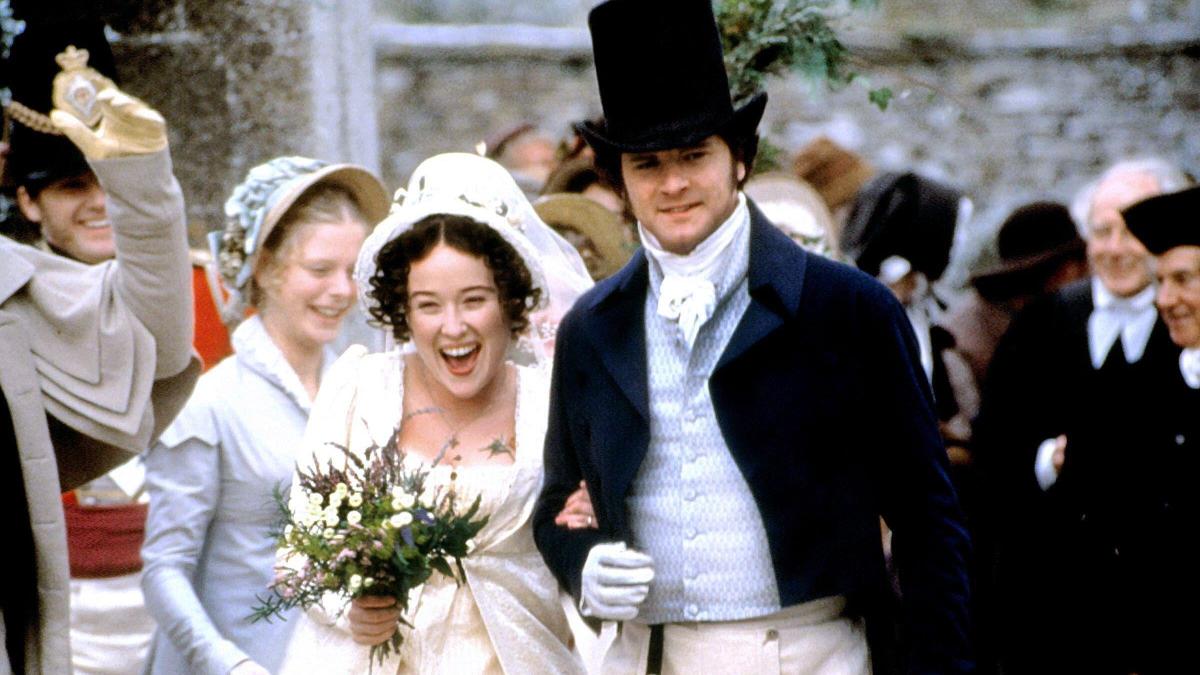It should be a truth universally acknowledged that BBC1’s six-part Pride and Prejudice, which premiered on September 24, 1995, is the best adaptation of any classic to date. It launched Colin Firth’s A-list career and propelled him (somewhat reluctantly) to heart-throb status, largely thanks to his wet shirt scene. And it changed the TV industry: until that point commissioners were reluctant to make period dramas, a strategy they ditched when Pride and Prejudice attracted over ten million viewers and unprecedented VHS sales. For better or worse (more on this later), there would be no Bridgerton without it.
The key, as its screenwriter Andrew Davies proudly admits, was sex. Not the in-your-face kind, but the nature-enhanced, delayed gratification kind. What is lingerie and full-frontal nonsense compared with Elizabeth Bennet’s woodland stomps and blushes? And on the 250th anniversary of Jane Austen’s birth, the Pride and Prejudice adaptations keep coming. A new audio version starring Harris Dickinson and Marisa Abela is available on Audible and Dolly Alderton’s series for Netflix is coming soon.
Here Davies and the cast reveal what happened when they filmed the 1995 series — including plenty of gossip.
Andrew Davies, writer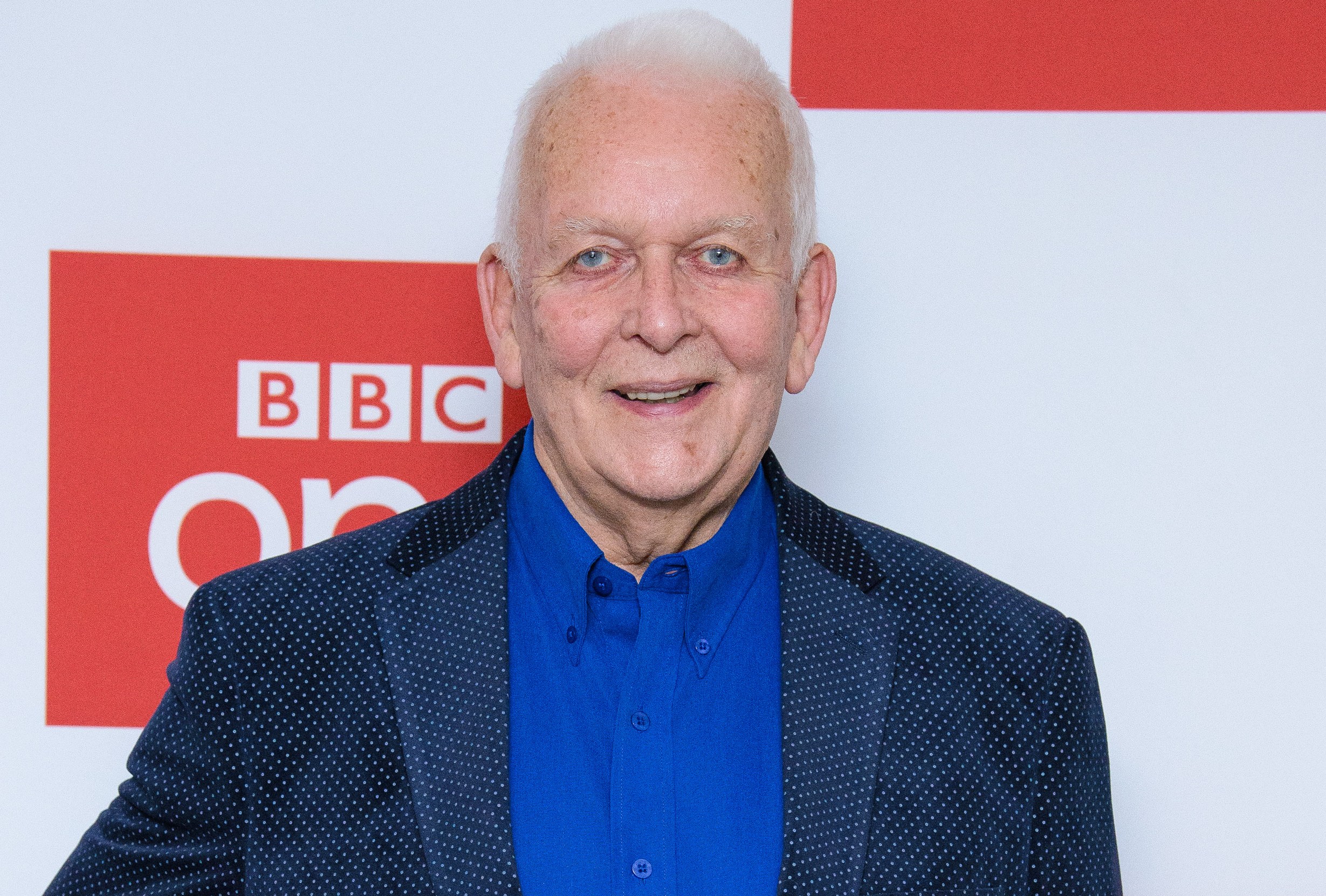
Andrew Davies: “I did put ‘Darcy has an erection’ in the notes for the pond scene”
JOE MAHER/GETTY IMAGES
Pride and Prejudice is my favourite novel. It’s like a fairytale, but it’s also very clever. It’s funny and it has possibly the most appealing heroine in the whole of English literature. Elizabeth Bennet is the kind of person you’d like to have for a friend. It has a plot like a Swiss clock: everything works, everything chimes into place.
Sue Birtwistle [the producer] and I had talked about Pride and Prejudice and what a sexy novel it is, which is a paradox because there isn’t any actual sex in it. The engine of the plot is Darcy’s desire for Elizabeth. He fancies her before he even likes her. We were sitting in a screening of somebody else’s adaptation of Northanger Abbey and Sue leant over to me and said, “What you and I ought to do is a really sexy adaptation of Pride and Prejudice.” And that’s how it all started.
I’d started talking to journalists about it before I’d even written it. [Then] The Daily Mail rang up a lot of bishops and Jane Austen society people and said, “Andrew Davies wants to write a pornographic version of Pride and Prejudice, aren’t you shocked?” So it got quite a lot of bad publicity before it was even finished. But it made people interested so a lot of people watched it and they liked it, even though it wasn’t explicitly sexy.
• Andrew Davies: ‘I write about the kind of sex we’d all like’
I was never tempted to make it explicit because there’s something about the anticipation. The trouble with modern stuff is: what’s to stop them getting into bed straight away? And then where’s your story gone? Where’s your suspense? I hate Bridgerton. It’s deeply silly. Good luck to it, I wouldn’t harm it — as my mother-in-law would say about things she didn’t like particularly.
I did put “Darcy has an erection” in the notes for the pond scene. It was intended to be helpful for the actor. I didn’t mean the camera should cut to his breeches, I just meant he’s suddenly struck by how much he fancies Elizabeth. It made me laugh to write it and I thought the actor could get a laugh out of it as well. We had a bit of an argument about whether Darcy should be wearing anything when he dives into the lake because when men went bathing in those days they would do it naked usually. Sue, and I think Colin, didn’t want to do it that way and Sue won that argument. I think she thought it made the aftermath sexier. I suspect Colin wasn’t altogether happy with how his body would look with nothing on because it was before the days when actors worked out three hours a day in the gym.
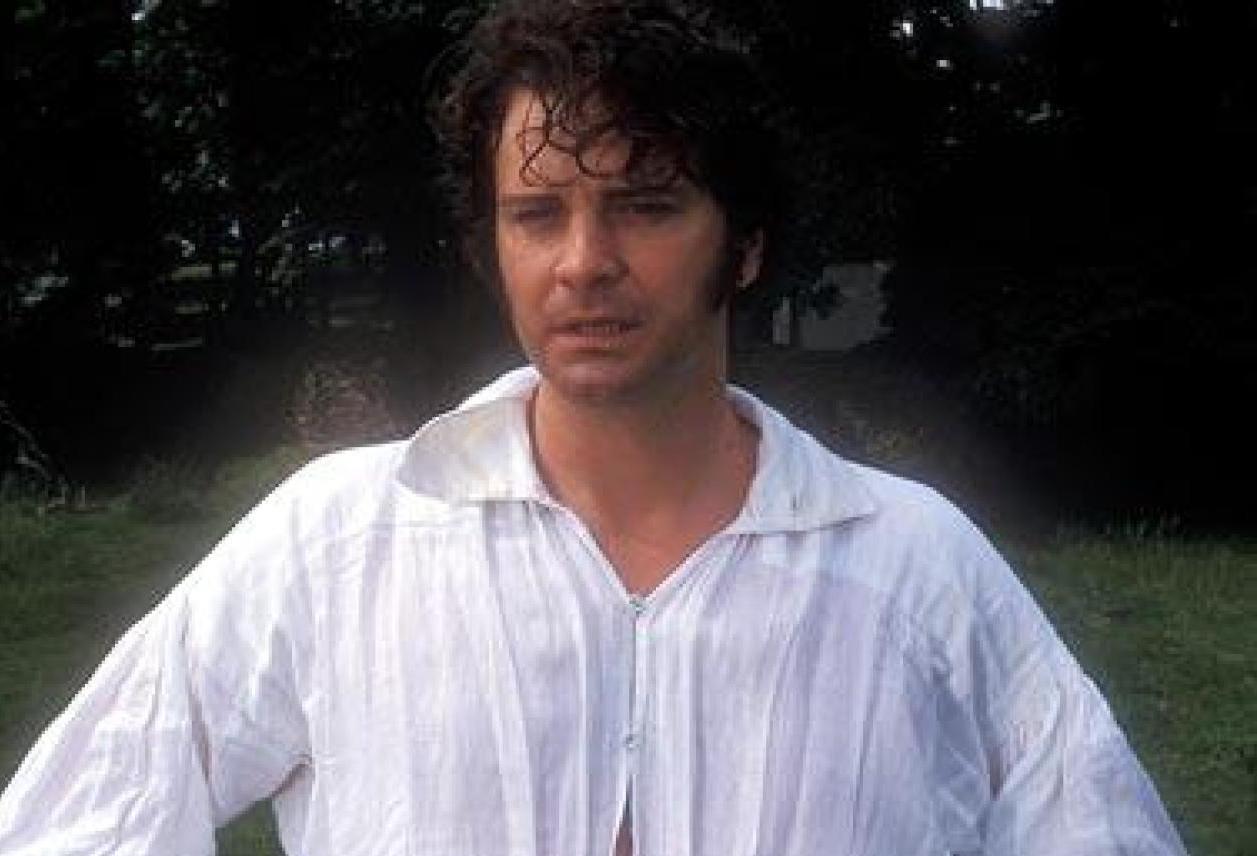
Colin Firth as Mr Darcy in the bathing scene
I think I’ve been quite a big influence on modern adaptations. Pride and Prejudice still stands up now. Nobody wanted to do classic dramas then. It was terribly difficult to persuade people to even consider it. Sue tried to sell it to ITV — she told Nick Elliott, who was head of drama, she’d got this terrific book about this man with five daughters and they’re all brimming with hormones and he just wants to get them married before they all start having illegitimate kids. Nick, who had four daughters of his own, thought, “This is the sort of drama I’d like to see,” and asked, “Have you got the rights, can we meet the author?” — at which point Sue had to confess it was Jane Austen. But [Eliott] still commissioned three out of six episodes. But then his boss decided it wasn’t an ITV sort of thing. So we took it to Michael Bearing at the BBC who said, “If you do Middlemarch first I’ll let you do Pride and Prejudice.” I did and then we did Pride and Prejudice which got ten million viewers and my whole career changed.
The only reservation I had about Colin Firth was the colour of his hair, which was fair to ginger when he was in the Circle of Friends adaptation I wrote [in 1995]. I thought Darcy had to be dark and brooding. Sue said, “we’ll make him dye his hair” and he liked it and he kept it that colour. He always thought of himself as a character actor rather than a leading man and he got a bit stuck with Darcy. Then when Bridget Jones came out he was cast as Mark Darcy, so it was his own fault if he’s left with that.
Everybody seems to know now that Colin was helping Jennifer Ehle [who played Elizabeth Bennet] with her lines on a daily basis. I think they were in love. Sue told me that when she found out she summoned Colin and said, “I know this has started and I want you to make sure that you keep it going, keep that girl happy because I don’t want floods of tears on the set.” And he said, “Absolutely, of course.” In fact, Jennifer dumped him when the show was over. So everything worked out fine.
I was a bit scared of what people in the Jane Austen Society would say, but they know the novel so well that even if they didn’t agree with what I’d done, they’d see why I did it. In fact most people were very complimentary. They might pick on tiny details like “Darcy wouldn’t have used that sort of pen because it wasn’t invented for another ten years.” Of course I will watch the new Netflix version and no doubt enjoy it, but to my mind nothing will eclipse the 1995 one.
I’m just starting an adaptation of a fragment of Jane Austen called The Watsons, a bit like Sanditon — there’s only enough for a first episode, but we can make up the rest. I’ve reached the age now [88] when I’m old enough to appreciate Mansfield Park so I’m going to do a wonderful, radical adaptation. It’s going to take on board the implications that all the Mansfield Park wealth is based on a slave plantation in Antigua and Sir Thomas has to go there. And there’s another Mansfield Park in Antigua where Sir Thomas has another family that is mixed race and a whole different life and he never speaks of it when he comes back. I’m amazed nobody’s thought of it before. It will definitely be the boldest adaptation I’ve ever done.
• Jane Austen at 250 — and the truth about that Pride and Prejudice lake scene
Crispin Bonham-Carter, Mr Bingley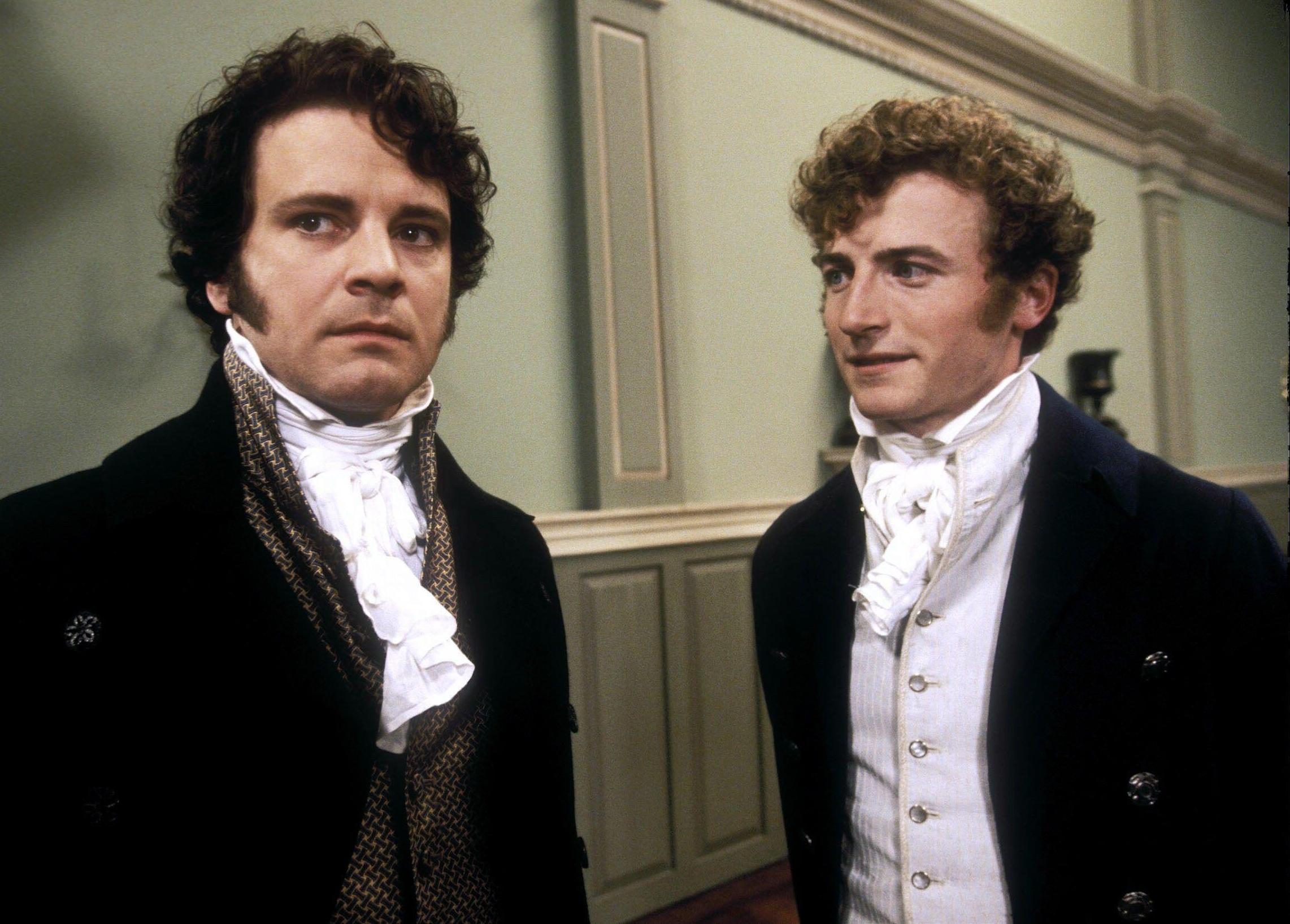
Crispin Bonham-Carter, right, as Mr Bingley, with Colin Firth
ALAMY
I was 24. I was doing Pygmalion at Nottingham Playhouse and the director wasn’t that keen on me going to auditions, but they let me in the end. I decided I’d wear my corduroy jacket because I felt that had an element of Regency about it.
I think they gave me the part because I was very like Mr Bingley. I really wanted to get into radical theatre, but I was immediately snatched up by the costume drama machine and I fitted quite well into it. I’d been to balls in real life. I was hoping I’d be able to break free from all that, but they took one look at me and thought: “Mr Bingley”. I actually didn’t know how to ride a horse, despite being posh. I’d been bitten by one when I was quite young and shied away from it. There’s a scene where I ride away and you can see me struggling to control this horse. I can remember Alison Steadman saying something like, “Mr Bingley is such a lovely man, it’s such a shame he can’t ride.”
Colin and I stayed in touch for quite a while. We were good friends on set and there were all these lovely girls around playing their parts. We were discussing the girls we liked the look of, as I know they were about us: it mirrored the text. There is a very elite group of women who see Mr Bingley as the real sex symbol in Pride and Prejudice. There was a German fan site set up, which was flattering.
I got lots of roles afterwards in that vein. Either I was a delightful young man or an evil person pretending to be a delightful young man. I had a tiny part in Bridget Jones. I don’t want to sound ungrateful, but the roles I was getting didn’t feel enough to justify the insecurity and the waiting. When I was 30 I became a theatre director and did pretty well — I won the Jerwood Young Director Award and was assisting in the West End. I helped Nick Hytner at the National. But I had four kids and a mortgage. At 37 I decided I’d quite like to have a life that involved me being around. I’m now an assistant head teacher and I teach English at Queen Elizabeth’s School in Barnet, north London.
My students quite often tell me that their mothers watch Pride and Prejudice. Occasionally I’ll be asked at parent-teacher meetings for a photo. I feel lucky that the thing I’m recognised for is really lovely. I don’t use the series as a teaching tool, I slightly cringe when I see my performance — I see a very young actor who’s standing around smiling a lot. But I persuaded Alison Steadman [Mrs Bennet] to do the leavers’ talk at our school this term: she was fantastic.
• Jane Austen would be astonished by her fame. Does she really deserve it?
Adrian Lukis, Mr Wickham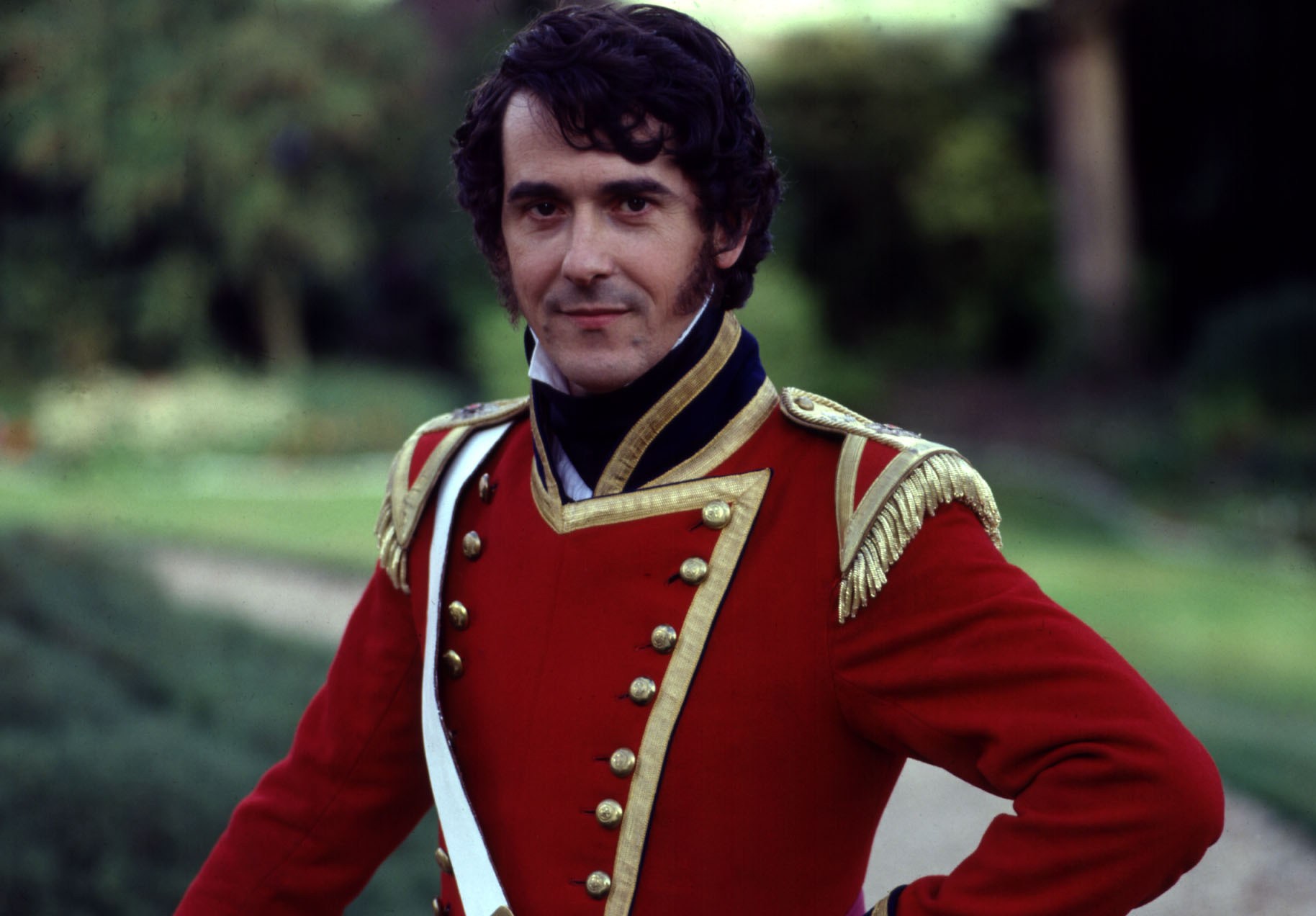
Adrian Lukis as Mr Wickham
BBC
I originally got the Fitzwilliam Darcy part, but then the actor who had been cast as Wickham dropped out — I think it was Rupert Graves — so suddenly that part became free.
I’d read the book at school. I hadn’t been particularly interested in the romantic entanglements of a group of girls in Hertfordshire. I was more into Henry Miller and Arthur Miller. Then when I was cast I read it very thoroughly — the one thing I was keen to do was to not make Wickham too obviously a seducer and a rogue. Elizabeth Bennet is obviously a highly intelligent, perceptive heroine and if she has the wool pulled over her eyes by a man who’s clearly a wrong’un, then that’s not any good. So I decided to play him as plausibly as I possibly could: pleasant and sweet.
Since then I’ve written a whole play about Mr Wickham which I’ve been performing all over the world — it’s about why he turned out the way he did and asks if he’s quite the rogue Jane Austen and Mr Darcy suggest. I suggest he isn’t.
I was introduced to Susannah Harker who played Jane and she said, “I was thinking about keeping the sides as they are and ruching it up.” And I said, “No, I’m not your wig man, I’m Wickham.” She’d misheard. I asked Colin how he was doing and he said, “Absolutely petrified”: he was playing the biggest character in English literature. He played guitar. I remember him banging out some Neil Young numbers.
Once I arrived at a hotel where Colin was and we ended up playing pool and getting a bit drunk. People used to drink more in those days. He said, “I bet your room doesn’t have a Jacuzzi … mine has because I’m playing the lead.” We ended up taking all our clothes off and piling into his Jacuzzi, probably with more booze. Joanna David [who played Mrs Gardiner] came into the room and took photographs. The director Simon Langton popped in and said, “Oh no, no, what are you doing? You can’t get drunk and sit in the Jacuzzi.” The next day Colin said we had to get the photographs back. Jo David said, “It’s fine, boys, don’t worry, I destroyed the film already.” It’s a shame because those photographs would be worth a fortune now.
[When it came out] I remember getting in touch with Colin and saying, “It’s Darcy fever … why don’t you and I go out? Mr Darcy and Mr Wickham in the West End.” It sounds very self-centered now. We met in a pub and sat there for two hours and not a single person came up. In those days Colin used to dress in tie-dye T-shirts and baggy jeans. We were unrecognisable once we were out of our ruffs and beautiful sideburns.
• The truth about Jane Austen’s extraordinary final years
Lucy Briers, Mary Bennet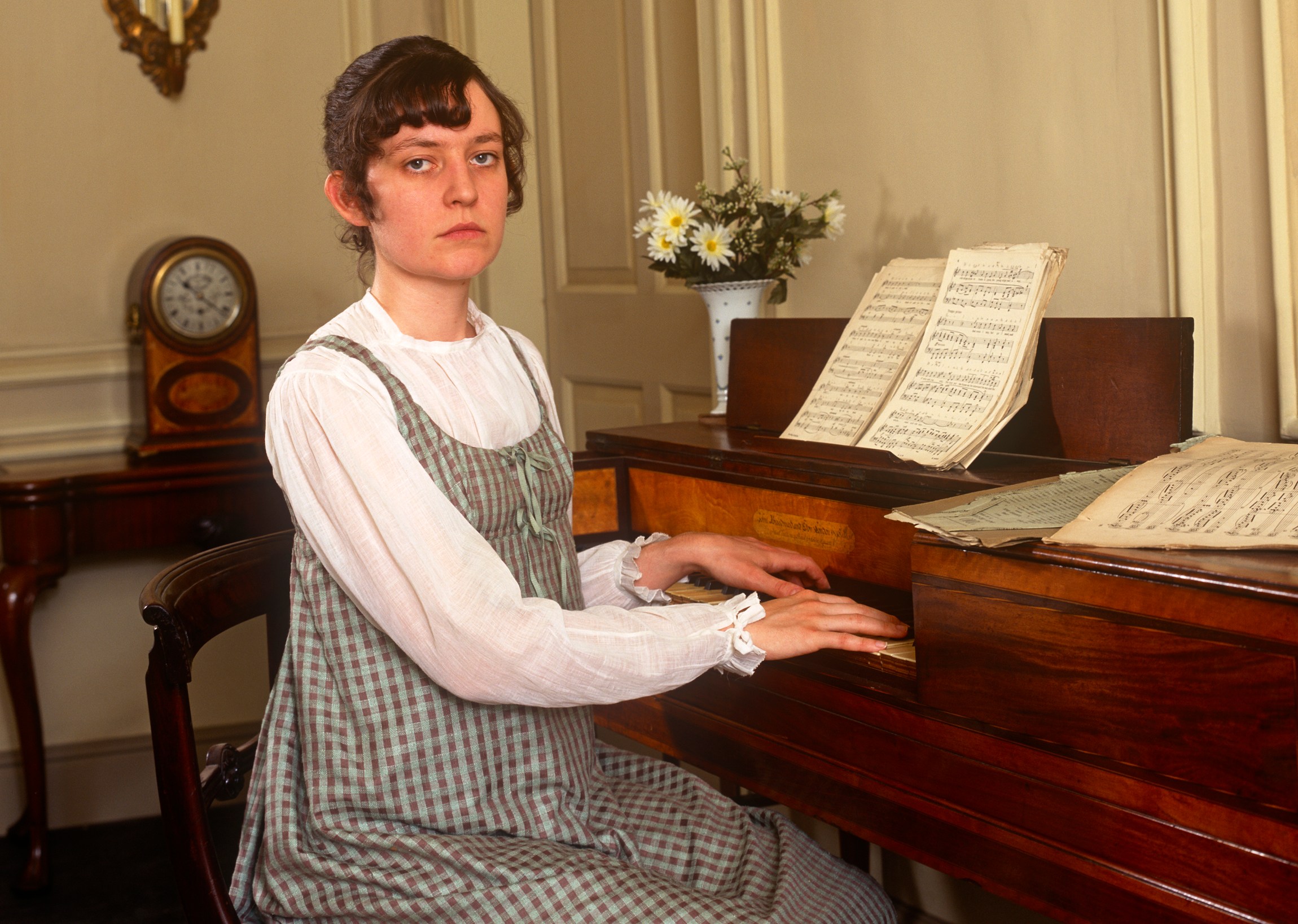
Lucy Briers as Mary Bennet
BBC
I was 26, I’d left drama school two years before and had done a lot of touring theatre and I was broke. I got this job and was suddenly being paid a lot of money — four times what I’d been earning. I paid off all my student debt. We had so much fun making it — maybe that translated onto the screen and is part of the reason it’s so loved.
So much of me is Mary. I also think she is kind of Jane Austen. She wasn’t “conventionally pretty”. She didn’t marry. Her family would only allow her to practise the piano when they were all out of the house. I’m not conventionally pretty, which is obviously why I got the job in the first place. Now I look back on photos of myself and think I was actually really attractive when I was younger. We’re so hard on ourselves. I’ve never been a girly-girl, I didn’t want to get married — I just wanted to be an actor. So I really understood Mary’s thing of rolling her eyes at her sisters. I have been married twice now and am still happily married to my second husband, but it was never something I was planning to do.
I learnt the piano at school. I was probably up to grade five or six level. But by the time I’d auditioned I hadn’t played for eight years. I told a white lie and said I was really good, thinking I wouldn’t get the job. My agent then rang and said Carl Davis, the composer, wanted me to go to his house and play the piano for him. I bashed my way through Moonlight Sonata, then I left, went to the phone box, rang my agent and burst into tears. I was sure I was going to be fired. Two hours later she called me and apparently Carl Davis had said, “Oh my God it’s so fantastic that the actor playing Mary Bennet is already playing the piano [badly] like her character.”
The only thing that frustrated me was from that point on for five years after, all I went up for was women who were plain or who had never had sex or who weren’t going to marry. I thought, “You know, I can do other things.” That then shifted. But on a practical level, it paid the mortgage. I felt quite relieved that I didn’t have to be constantly worrying about my appearance. I could go to an audition with very little make-up on because that was the point of the role. I settled into it after my initial frustration.
• Read more TV reviews, guides about what to watch and interviews
Susannah Harker, Jane Bennet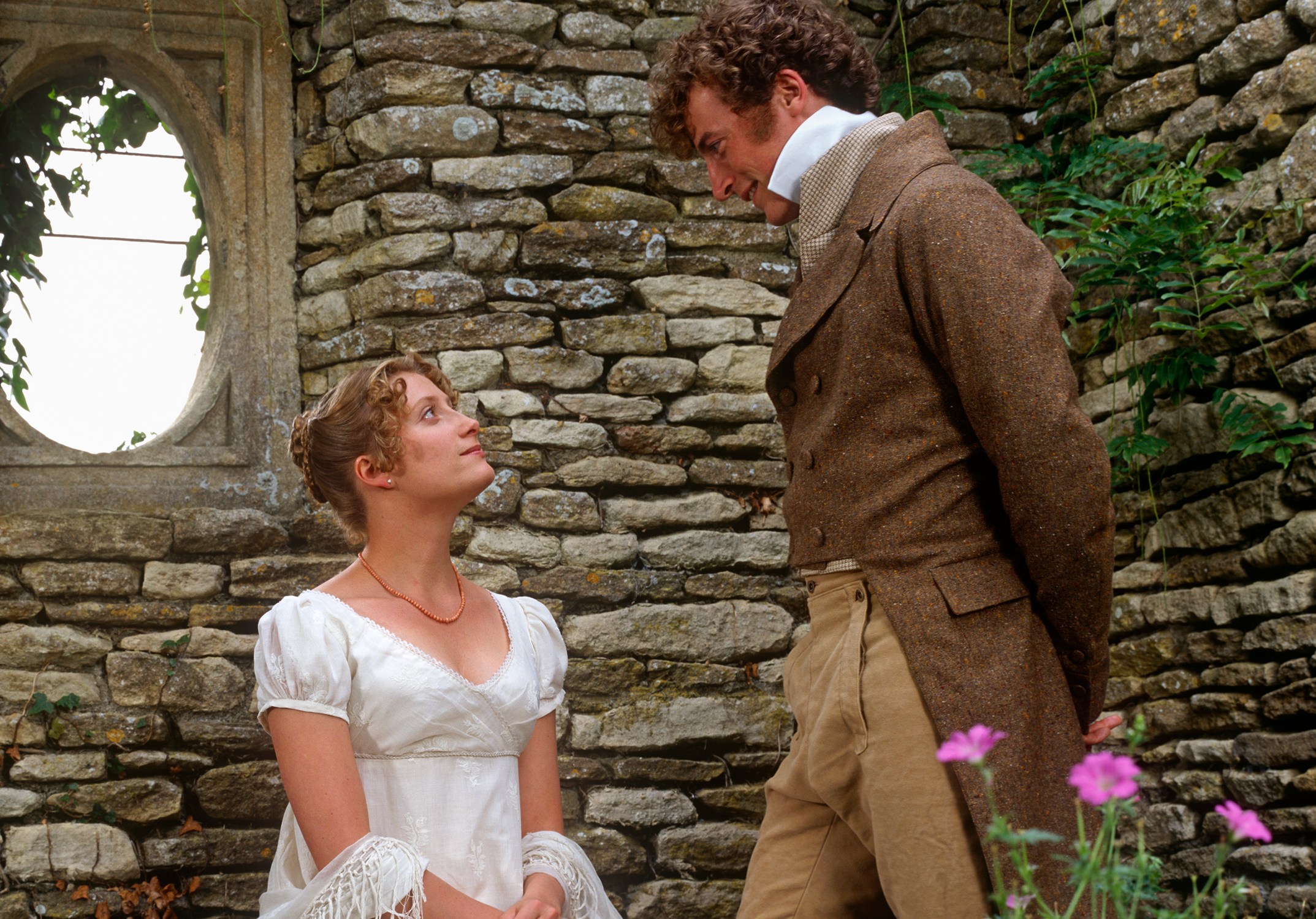
Susannah Harker as Jane Bennet, with Crispin Bonham-Carter
BBC
I was pregnant so that was fairly uncomfortable. They had to re-costume me because I was going to change shape. I was really tired and had my hair basket weaved into place: I didn’t have a wig, so I had to get in at five o’clock in the morning feeling quite sick and was not allowed to lie down because it would ruin the hair. But there was fantastic camaraderie because it was a bunch of girls together out in the most incredible countryside in the most wonderful costumes.
My mother [Polly Adams] had played Jane Bennet in the 1976 BBC version so it was a bit of a mantle I was inheriting. There isn’t much sexiness and life in Jane. But I enjoyed playing the sweeter than sweet — it was quite difficult to do: maintain an interesting quality while being so pure. Jane was based on Cassandra, Jane Austen’s sister. I’d done a lot of research on her and serenity was the No 1 quality. Being pregnant kind of suited that part. She wasn’t full of life and fire, which Lizzy is.
My son, who I was pregnant with at the time, recently assisted on a theatre production called Pride and Prejudice (Sort Of), a comedy spoof thing which has been running for ages, and I went to see someone giving their interpretation of Jane. It still lives. And I’ve just written something called Jane Bennet’s Second Spring about my experience of playing Jane Bennet when I was young. It’s a film, addressing how you can be very visible in something and then as you get older as a female actor it changes and shifts. The parts fall away or the parts you’re given when you become 50-plus don’t truly reflect who we are as women. The dial needs to shift.
I hadn’t seen it for a long time until recently when my mum was watching a re-run and I was caught up, kind of spellbound by how beautiful I had been. I didn’t see myself as being at all beautiful — I just thought I was an actor playing a beautiful role.
Pride and Predjudice is on iPlayer
Love TV? Discover the best shows on Netflix, the best Prime Video TV shows, the best Disney+ shows , the best Apple TV+ shows, the best shows on BBC iPlayer , the best shows on Sky and Now, the best shows on ITVX, the best shows on Channel 4 streaming, the best shows on Paramount+ and our favourite hidden gem TV shows. Don’t forget to check our critics’ choices to what to watch this week and browse our comprehensive TV guide

